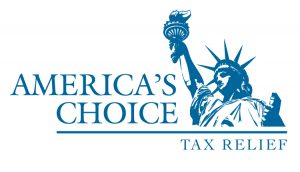Living Abroad as An American Taxpayer
Even if you are living abroad, you still owe taxes to the U.S. government. Your tax payments are still due April 15 and you still need to track your income. There are credits, deductions, and extra papers you need to file while you live out of the country.
The Foreign Account Tax Compliance Act (FACTA) is an effort to counter American taxpayers committing tax evasion by holding accounts in countries outside the U.S. It requires foreign financial institutions to report accounts held by American taxpayers. The financial institutions include banks, investment companies, insurance companies, brokers, and credit unions.
If you have any questions about reporting taxes to the IRS while you’re abroad for at least 330 days out of the year, call America’s Choice Tax Relief. We’ll be happy to discuss how to remain compliant with the IRS while abroad.
Automatic Two Month Extension
If you can’t make the June due date, you have to manually request an extension to the IRS before June 15 to qualify for the October due date. Remember that interest will accrue on your tax payment even with the two-month extension. The extension is mainly to prevent the IRS from applying penalty fees on your taxes.
Exchange Rates
Form 8928 and FBAR Requirements For Living Abroad
The FBAR
- Foreign stock or securities held in a financial account at a foreign institution
- Foreign life insurance or annuity contract with a cash-value
- Mutual funds
Form 8938
Form 8938 is only applicable to American citizens who meet a certain threshold of income.
| Filing Status | Last Day of the Year | Any Time of the Year |
|---|---|---|
| All Single Filers | $200,000 | $300,000 |
| Married (jointly) | $400,000 | $600,000 |
Reportable Foreign Assets
The IRS provides a complete list of reportable assets that would need to be reported for Form 8938 and FinCEN Form 114 (FBAR).
United States Tax Credits and Deductions for Living Abroad
In order to qualify for any foreign tax credits and deductions, you must meet certain requirements. You must have earned foreign earned income that is also subject to USA income tax. Your home must be in a foreign country, and, as an American citizen or resident alien, meet specific residency requirements set by the IRS.
Should you apply foreign tax credits to your taxes, you must apply them to all your taxes. You can’t deduct and credit your taxes. You must choose one or the other. However, there is an exception. You may apply a deduction on foreign taxes if they don’t qualify for credits.
Credits are meant to help you mitigate your taxes from both the United States and the foreign country you reside in. The IRS advises that “it’s better to take a credit for qualified foreign taxes than to deduct them as an itemized deduction.”
